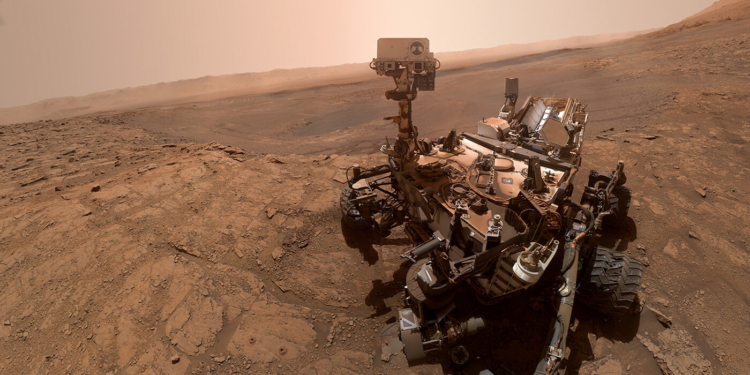Image: Singapore Ministerial Conference, December 1996. Source: WTO.
SCHOLAR Gérard Curzon claims that the General Agreement on Tariffs and Trade (GATT) secretariat had to deal with the relationship between trade and development as early as the 1950s. No doubt, it was the entire international order that had to deal with this tough issue in the post-war period, starting with the United Nations (UN).
In fact, in 1955, the Bandung Conference increased the UN’s membership base, particularly in favour of developing countries. These countries viewed that as an opportunity to enrich the international agenda with themes they held dear, such as decolonisation, economic and technical assistance, and disarmament.
At the same time, the United Nations Economic and Social Council (ECOSOC) had published a detailed analysis of post-war world growth. Among other things, the report deplored the “unsatisfactory distribution of the gains from trade” in a world where the relative prosperity of the rich countries only “marginally benefited” the poorer countries.
It was on. The battle of ideas was launched. There was no longer any doubt that the international trading system did not always serve the interests of the poorest countries and that something had to be done about it. And international organisations were considered – and still are, no doubt – as instruments of pressure to reshape the global order to achieve historical justice.
Take Philippe de Seynes, then Under-Secretary-General for Economic and Social Affairs. In his closing address to the Second Committee of the UN General Assembly in 1961, he noted that “the system of concepts and institutions that have served as a framework for development and trade liberalization is no longer entirely appropriate to the present situation…”
Shortly afterwards, in 1964, the first United Nations Conference on Trade and Development (UNCTAD) was held in Geneva. Its first Secretary-General, Raúl Prebisch, was renowned for his work at the Economic Commission for Latin America and the Caribbean, a major centre of critical thinking on “Third World” development at the time.
UNCTAD’s objective was not only to align the international trading system with the real needs of developing countries, but also to correct long-standing injustices that characterized the international trading system in the eyes of the poorest of States. but UNCTAD lacked the powerful legal instruments enjoyed by the GATT, for instance.
Indeed, at the time of its creation, several observers feared that UNCTAD would prove unable to fulfil its mandate given its ambition. The failed experiment of the International Trade Organization (ITO) had left its mark on the minds of the Western bloc. The ITO’s boundless policy-area – touching areas such as international trade, entrepreneurial practices, employment promotion, economic policies, private investment – had set it up for utter failure. It was thus believed that short-scoped international organizations would enjoy increased longevity.
Everyone was aware of that, of course. For instance, a French diplomat argued in 1964 that UNCTAD’s success should be seen less in terms of what it could achieve as an institution, and more in terms of how it would influence future discussions. In other words, the UNCTAD was to provide a high-profile stage where discussions on the effects of trade on development could indirectly influence other international organizations such as the GATT. Case in point: in 1964 the latter was amended to include a Part IV, entitled Trade and Development.
When the GATT became the WTO, as per the Marrakesh Agreement in 1995, the issue of development remained a thorn in the organization’s negotiating instance. Especially since, by then, the multilateral trading system was not at all like that of thirty years earlier, when UNCTAD had been created. Consider the following:
While the WTO inherited the GATT’s tradition of consensus-based decision-making, it is also substantially different from the latter. For example, the GATT subjected member countries to negative prescriptions – what they should not do – around which they articulated their trade policies. On the other hand, the WTO subjects its member countries to binding agreements whose implementation is mandatory. Crucially, while the GATT aimed to promote trade liberalisation through tariff reduction, the WTO advocates policies of market opening – a much stronger and more intrusive approach to international organization.
In sum, the WTO incorporated in its structure and procedures – much more than the GATT – the function of governance. This provided a golden opportunity for developing countries, who witnessed the WTO equip itself with all the policy-making tools that they would have provided UNCTAD if only history had turned out differently. Thus, asserting their development interests within the Organization became crucial.
But they were not alone. “It was no coincidence that the WTO was the first post-Cold War international organization,” wrote scholar Michael Hart in 1997. Indeed, with the simultaneous fall of the USSR, the WTO was strategically placed at the dawn of a new political order, in which issues such as economics and trade would come to the forefront of state concerns – once rather galvanised by issues of peace and security.
One should not expect to fully grasp the WTO’s current predicament without understanding the institution’s long and troubled history with the matter of development. But, more crucially, in a time when the relevance of the Organization is called into question, it is useful to remember that the challenges affecting it go way back. When it comes to international organization, we must still pay tribute to the inequitable state of the world we have inherited.
Author
-
Murillo Salvador is chief editor at International-Organization.Com. In the past, he has worked at the Organisation for Economic Co-operation and Development, and at the Mission of Brazil to the World Trade Organization. He currently lives in Geneva.
View all posts
Related Articles
June 7, 2021
The United Nations’ ‘Wild West’ of Artificial Intelligence
For an organization like the United Nations, artificial intelligence can have promising applications in the field. Its usage should follow strict guidelines that have yet to see the light of day.
May 31, 2021
Who Owns Space’s Natural Resources?
Space governance is emerging as a major issue of our time. In-between old multilateral rules and new bilateral developments, international cooperation on space has had a hard time materializing.
May 24, 2021
Covid-19 and the End of “Global Health”
Covid-19 has unveiled big problems with the world's handling of infectious disease. As a global problem, it has not prompted a global response. This failure of global health should not be repeated.


